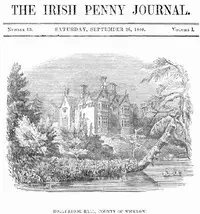"Index of the Project Gutenberg Works of Madame D'Arblay (Frances Burney)" by Burney is a comprehensive compilation of the works of the celebrated English novelist and playwright, Frances Burney, written during the late 18th century. This index spans several prominent works, including novels like "Evelina," "Cecilia," and "The Wanderer," alongside her diaries and letters. The book likely serves as a valuable resource for readers and scholars interested in Burney’s contribution to literature and her perspectives on society, gender, and the literary scene of her time. The content of the index details a wide array of Burney's writings, reflecting her unique insights into the lives and challenges faced by young women in her era. Her novels often explore themes of identity, societal expectation, and the nuanced experiences of women navigating a patriarchal society. In addition to her fictional works, the diaries and letters provide personal narratives that reveal her relationships with literary figures such as Dr. Samuel Johnson and members of the royal court, enriching our understanding of her life and the historical context in which she wrote. Overall, this index serves both as a guide and an invitation to delve into Burney’s multifaceted legacy. (This is an automatically generated summary.)

Index of the Project Gutenberg Works of Madame D'Arblay (Frances Burney)
By Fanny Burney
"Index of the Project Gutenberg Works of Madame D'Arblay (Frances Burney)" by Burney is a comprehensive compilation of the works of the celebrated Eng...
Frances Burney, also known as Fanny Burney and later Madame d'Arblay, was an English satirical novelist, diarist and playwright. In 1786–1790 she held the post of "Keeper of the Robes" to Charlotte of Mecklenburg-Strelitz, George III's queen. In 1793, aged 41, she married a French exile, General Alexandre d'Arblay. After a long writing career and wartime travels that stranded her in France for over a decade, she settled in Bath, England, where she died on 6 January 1840. The first of her four novels, Evelina (1778), was the most successful and remains her most highly regarded, followed by Cecilia (1782). Most of her stage plays were not performed in her lifetime. She wrote a memoir of her father (1832) and many letters and journals that have been gradually published since 1889, forty-nine years after her death.


















